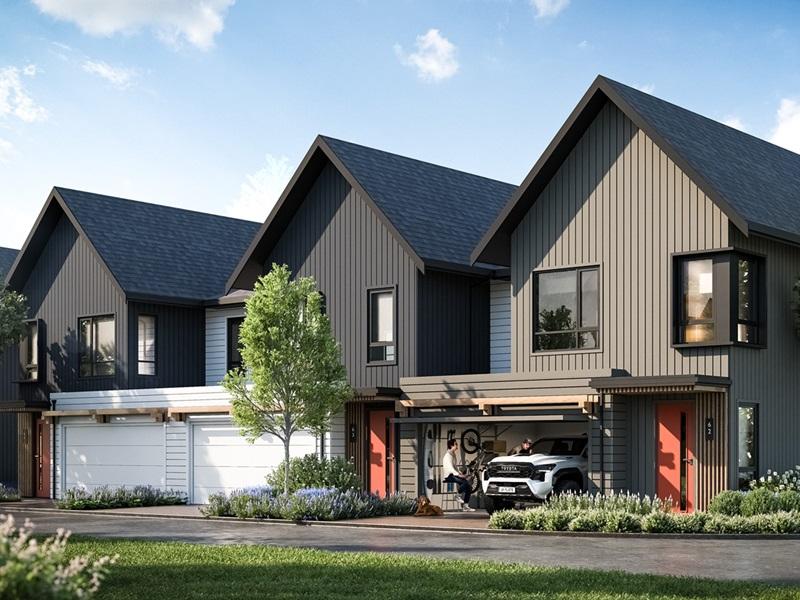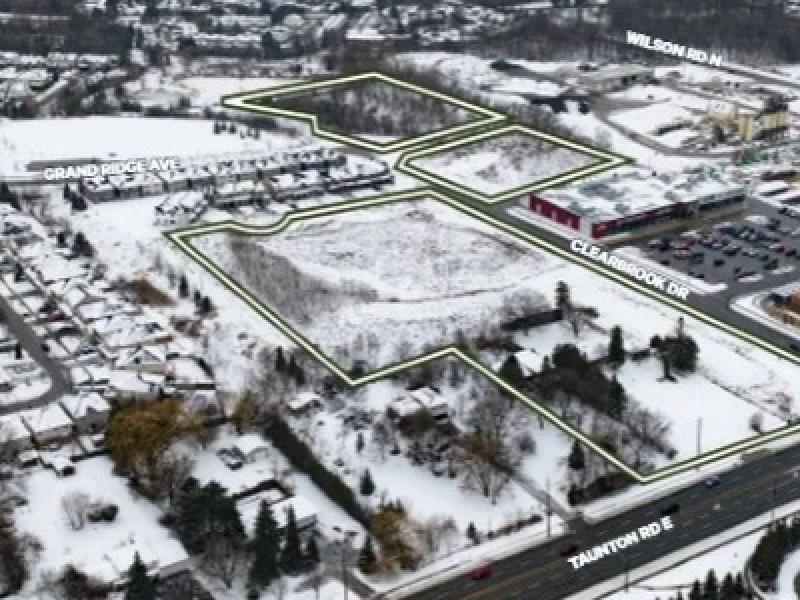
The 2024 finalists for the Building Industry and Land Development Association (BILD)’s DelZotto Fearless Innovator Award are helping to drive two very different types of innovation in the housing industry.
Irrespective of who among Greenbilt Homes and TAS is announced winner at the May 30 gala and awards ceremony in Vaughan, they are making strong statements about the modern home and the companies that build them.
Justin Sherwood, BILD’s SVP of communications, research and stakeholder relations, told RENX Homes the finalists were selected for different reasons.
“For TAS it was the extent and quantifiable impact they are making in sustainability and affordable housing, and for Greenbilt Homes, it was their innovation in a new housing form” he said.
“Both demonstrated a pattern of innovation; each outlined the company and industry transformation and provided quantifiable demonstrations or qualitative measures of the impact the innovation is having or will have on the sector, economy, society or culture.”
Greenbilt and The Flex Plex
Greenbilt’s Mimico-based prototype is an all-electric house split into two units, with the developer and his wife residing on the main floor and the upper unit rented to a tenant.
But Greenbilt Homes owner and president Mike Manning envisions a four-unit Flex Plex as the ideal incarnation. Not only would that ameliorate fickle construction economics in Canada’s largest city, it would create precious units in the middle of a housing crisis in which there’s a chronic undersupply of homes.
“The social considerations have been top of my mind the last few year because I always want to build an energy-efficient home that is resilient with climate change, but it’s the social aspect of it,” Manning said.
The Flex Plex can be built as a single-family home, but it will have all the components to convert it into a multiplex already roughed in, requiring minor renovations to transform.
“If it’s a single-family house, but all of a sudden you lose your job, you can do a simple renovation and put another apartment in your place because everything is there roughed in. And now you can have a revenue stream to help pay for some of your expenses,” Manning said.
“The fact this looks like a single-family house that can flex into two, three, four apartments gives that owner some flexibility and to be honest, a revenue stream to be able to help afford getting into the real estate market.”
Manning also contends these passive rental income opportunities will help young people with the prohibitive cost of home ownership, and help keep them where they grew up instead of searching for affordability further afield.
The concept could also help some owners age in place.
“We’re getting quite a few calls about multigenerational living,” Manning added. “It works both sides of the coin: young people have their baby boomer parents who have the equity in the land, and when they live in one building they can support each other financially and emotionally.”
TAS tackles environmental, social challenges

Elaborating on Sherwood’s reasons for the BILD Awards choosing the second finalist, Kate Murray, TAS’s director of impact strategy and measurement, explained the company’s progressive ethos. This includes its ambitious “Impact Framework” which launched in June 2021.
TAS is committed tackling climate change, affordability and equity in the housing market; it has also developed a strategy to provide commercial space to social purpose organizations at discounted rates; and it is focused on building social capital in the communities where it is active.
Among its lofty goals are having a net-zero portfolio by 2045, and having at least 10 per cent of its residential portfolio, and 10 per cent of its commercial portfolio, below-market by the end of this decade.
TAS’s two projects, 2 Tecumseh Street and 880 Eastern Avenue, are where it expects to make these impacts.
“Within tackling climate change and applying a life-cycle analysis approach to measuring the embodied carbon and the operating carbon of our projects, we have one development project where we expect to reduce greenhouse gas emissions by about 55 per cent,” Murray said.
“We have another project where we diverted 92.6 per cent of demolition waste from the landfill, which included over 62 per cent being salvaged and stored on-site for direct reintegration into the landscape.”
But with difficult building economics wreaking havoc on things like pro formas, TAS certainly has a difficult task ahead, although Murray isn’t daunted.
“We take an iterative approach to the design of buildings; there’s a lot of things you can do from the structure,” Murray said. “Reducing the substructure is a big one where you can reduce somebody’s carbon through the design, before you even have a shovel in the ground, as we move through the process iteratively to find all the opportunities that may be low- or no-cost to reduce carbon in first place.”










